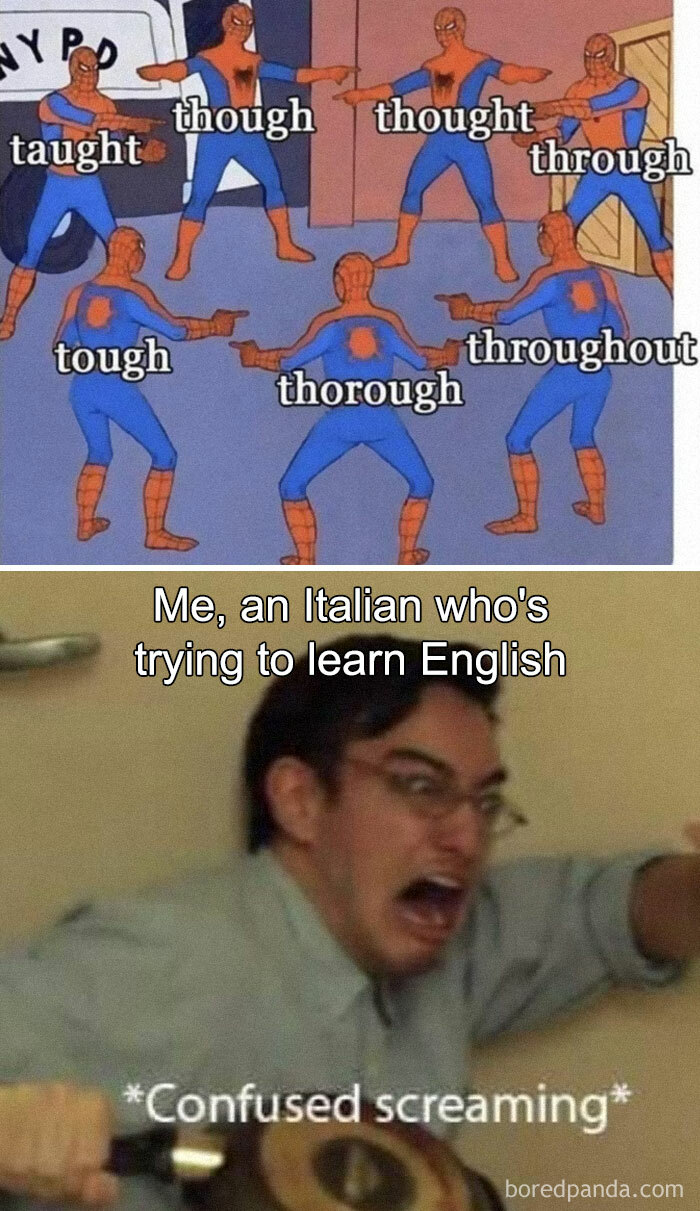this post was submitted on 07 Oct 2023
1024 points (97.5% liked)
Memes
8573 readers
594 users here now
Post memes here.
A meme is an idea, behavior, or style that spreads by means of imitation from person to person within a culture and often carries symbolic meaning representing a particular phenomenon or theme.
An Internet meme or meme, is a cultural item that is spread via the Internet, often through social media platforms. The name is by the concept of memes proposed by Richard Dawkins in 1972. Internet memes can take various forms, such as images, videos, GIFs, and various other viral sensations.
- Wait at least 2 months before reposting
- No explicitly political content (about political figures, political events, elections and so on), !politicalmemes@lemmy.ca can be better place for that
- Use NSFW marking accordingly
Laittakaa meemejä tänne.
- Odota ainakin 2 kuukautta ennen meemin postaamista uudelleen
- Ei selkeän poliittista sisältöä (poliitikoista, poliittisista tapahtumista, vaaleista jne) parempi paikka esim. !politicalmemes@lemmy.ca
- Merkitse K18-sisältö tarpeen mukaan
founded 2 years ago
MODERATORS
you are viewing a single comment's thread
view the rest of the comments
view the rest of the comments


Of course, this can be confusing, but wouldn't every single language have some confusing parts? As a non native English speaker who tried to learn other languages (without much success for now) I find English to be actually rather easy.
What would you propose as an easier alternative for a "universal" language?
Out of the languages I know, non have the nonsensical letter-sound pairings that English has. French has some combinations you wouldn't expect (like eaux= o) but they are consistent in every word they appear. Irish also has some wild letter combinations, but I know to little about that to know, if it's as confusing as English.
To illustrate, I would say you could write the words above a lot easier and understandably:
Taut, thou, thaut, thru, thruout, thorou, tuff
Grammatically, English is pretty easy. But the pronunciation is so inconsistent, that it is necessary to hold spelling bees in school. My language doesn't need spelling bees for example.
Still inconsistent. Better would be toht, ðow, þoht, þruw, þruwawt, þərow, təf in American English.
Yeah, but I tried to stick to the presently used alphabet.
To fully heal English, a bigger operation is in order.
I mean, ə could be replaced wiþ y (which would be kind of similar to Welsh) if j spells ðe /j/ sound (y as a consonant), but þorn and eð have been part of ðe English alphabet before ðe Fr*nch came and are otherwise quite difficult to replace intuitively.
Which languages do you speak, if you don't mind?
I'm a dirty monolingual but I'm fascinated by etymology and shared words.
German natively, English, French and Spanish.
Lol taut is already a word, it's homophone of taught and means stretched tightly. And thou is the spelling of the archaic/biblical you. Also thou sounds like cow and though is most often substituted as tho
And thru and tuff are sometimes used in American English, but mostly on signage and branding
That means, they are sensible ways to spell those words, doesn't it? Like "open alnite".
Sure, in informal situations currently it's fine. It may change in the future depending on how common its usage becomes. Nite is a good example of informal English becoming so normalized that is formally acceptable.
For what it's worth though the examples I was thinking of are more like trademarks. Drive-thru and tuff-stuff (cleaner brand) were the first to come to my mind.
Esperanto. It’s extremely easy to learn and very consistent, though not perfectly so.
Some people might suggest Esperanto, but I don't speak it.